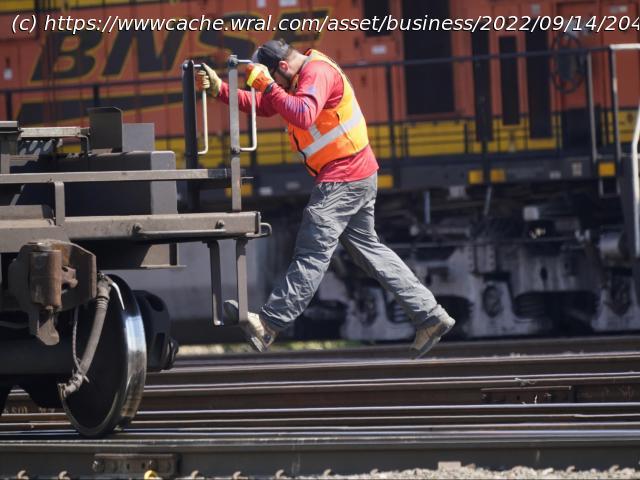Commuters, food producers, refineries and others could all be affected if there is a nationwide rail strike at the end of this week.
Commuters, food producers, refineries and others could all be affected if there is a nationwide rail strike at the end of this week.
Members of one union rejected a tentative agreement that their leaders had negotiated with the biggest freight railroads, and three other unions were still at the bargaining table on Wednesday. Two other rail unions. unions ratified deals.
The Biden administration was putting pressure on railroads and unions to settle their differences and avert a strike. In case that didn’t work, the administration was also working on a plan to use trucks and planes to move goods that are normally carried by freight railroads.
Business groups told Congress to step in and block a strike.
Here are key things to know ahead of a possible strike this Friday.
___
HOW DID NEGOTIATIONS GET TO THIS DIRE POINT?
The nation’s biggest freight railroads began negotiating with a dozen different unions representing about 115,000 workers in late 2019, but talks were slowed by the pandemic, which limited face-to-face meetings.
Government mediators tried to broker agreements, but that didn’t work. President Joe Biden then appointed a presidential emergency board, which held hearings and issued recommendations last month that included 24% pay raises and thousands of dollars in bonuses.
Many of the unions have reached tentative agreements with the railroads, but two large unions representing engineers and train conductors have held out for better terms on working conditions. Workers represented by the machinists’ union rejected a deal negotiated by their leaders, although that union agreed to delay any strike until Sept. 29. Two other unions — the Transportation Communications Union and the Brotherhood of Railway Carmen — voted to ratify their contracts Wednesday.
___
WHEN CAN WORKERS STRIKE?
By federal law, the unions can’t legally strike until after Friday morning, just after midnight. That’s when a 30-day “cooling-off” period ends, under terms of a law called the Railway Labor Act, which governs contract talks in the railroad and airline industries.
___
CAN A STRIKE BE BLOCKED?
Congress could intervene and block a strike or lockout, as it has done in previous nationwide rail-labor disputes, but it’s not clear whether that would happen this time.






